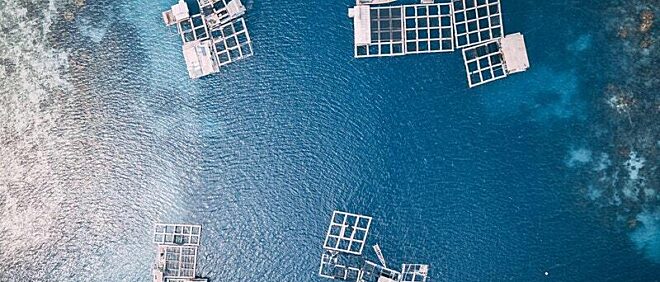
Development of highly sustainable less/zero competing-food aquafeeds for European aquaculture using low carbon and zero waste ingredients
Increasing the sustainability of European aquaculture
This project aims to develop novel feeds for marine fish to increase the sustainability of European aquaculture.
The need for sustainable fish feeds covering the whole production cycle, from larvae to marketable size, is a major challenge currently facing the aquaculture sector. Fishmeal content in aquafeed for the major farmed marine species produced in Europe has progressively declined, being mainly replaced by plant ingredients. Some of these plant ingredients are valid food for human consumption though, so do not provide an ideal sustainable and resource efficient solution.
By-products from agricultural plant processing represent a sustainable and low-cost feedstock solution for aquaculture which has limited competition with human food. Similarly, microalgae can be used as feed ingredients, mainly for live prey mass-rearing during the hatchery stage. However, sunlight-based microalgae production results in variable, inconsistent dietary formulations. The use of highly concentrated CO2 waste streams from geothermal power plants could provide a low energy cost solution to this problem.
This project will develop sustainable feeds for marine fish, covering the two main production phases, hatchery and on-growing. As part of this, it will include an assessment of the environmental, economic and social impact of the feeds developed.
Project lead
Related Projects










